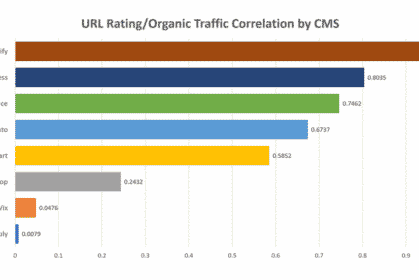

21/02/2015, SME
Why you Should Never let your Web Developers Host your Website
If your website went down for six months, what impact would it have on your business?

Richard’s website was built around two years ago by a web design agency based in London. They charged approximately £7,000 to build the site plus a maintenance contract of £250 per month.
The developers persuaded Richard that they should host his website on their own server. They explained this would make it easier for them to maintain the site and reduce his web hosting costs. Keen for an easy life, Richard agreed.
Six months ago, Richard became aware of a technical issue that resulted in a significant proportion of the job applications posted on his site not being processed or received by his office. The issue had cost Richard’s business several thousands of pounds in lost placement fees.
The developers claimed that the issue was not something they could have foreseen when they first built the site and demanded that Richard pay £1,500 to fix the problem. Although Richard felt this was unreasonable, he instructed them to fix the issue as quickly as possible. Each day the issue remained unresolved resulted in further loss to Richard’s business.
After the issue was corrected, Richard disputed the cost with the developers. He felt strongly that he shouldn’t have to pay to have a website fixed that wasn’t working to the specification agreed when the site was first built. The developers explained that the original contract stipulated any bugs and technical faults must be reported within the first three months of the website going live. The developer’s invoice soon became due, tempers flared and threats were made between the two parties.
One day, Richard received an urgent call from his staff to say that the website was down and they could not log in to the back-end system. The developers were not answering their calls or responding to any emails requesting urgent support. They had locked Richard and his staff out of the website and blocked all access to his online database.
Richard called the police but they refused to assist in what they saw as a civil matter. Richard’s solicitor threatened the developers with legal action but received no response. Richard’s only option was to take the developers to court.
Richard immediately contacted another web design agency to see if they could retrieve the site or build a new one as quickly as possible. He also contacted the web hosting company whose server the developers had been renting. They explained that as Richard had no direct contract with them they would be unable to help.
Without access to the web server on which his entire business relied, Richard’s business eventually had to cease trading. The matter is now subject to a lengthy and costly process in the High Courts.
Don’t give away the keys to your business

In the same way you would never let your cleaners hold the only set of keys to your office, equally you should never let your web designers host your website in their name.
Any small benefit you may gain in convenience or reduced costs are significantly outweighed by the existential risk to which you are subjecting your business.
In a survey conducted last year among UK-based SMEs, over 40% of business owners described their relationship with their web developers as either “strained” or “no longer communicating”.
How to take back ownership of your website

If you have an existing live website, use this tool to find out which hosting company your developers are currently using to host the site.
Most web developers buy hosting services from a third party supplier. They typically rent a server in their own name and then use it to host all of their client’s websites.
Once you have established which company is actually hosting your site, (assuming you are still on reasonably good terms with your web design agency), contact your developers and ask them to give you a quotation for transferring your website to a hosting account in your name with the same web hosting company. This will give you ownership of the site, simplify the site migration process and maintain the familiarity your developers already have with the web hosting platform.
Take ownership of all external services

For example, your site may be using Google Maps to retrieve location-based information, video hosting on a site such as Vimeo or analytics services such as Google Analytics.
These external services may be crucial to the running of your website. Make sure the accounts powering all of these services are held in your name and not that of your web developers.
Ask your web developers for the login details of all accounts held with third-party tool providers used on your website. If they inform you they cannot provide this information, insist that the service is migrated to your account and keep a record of all login details used to access these services.
Act now!

Addendum
Since publishing this post I have received critical messages from various web developers complaining that I shouldn’t tar them all with the same brush. They claim they would never leave their clients in the same situation as Richard. However, they are missing the point.
The very fact they could leave clients in this situation should be enough to make business owners think about how dependant their are on the web developers.
Nor does this only apply to web developers. Every company should have a contingency plan for any business-critical service. This is basic due diliegence.
Every web developer is honest and reliable until the day that they are not. Until that day arrives, there is no effective way of knowing the difference.
If you would like to hear more thoughts about online marketing, please follow me on Twitter Follow @DannyRichman

